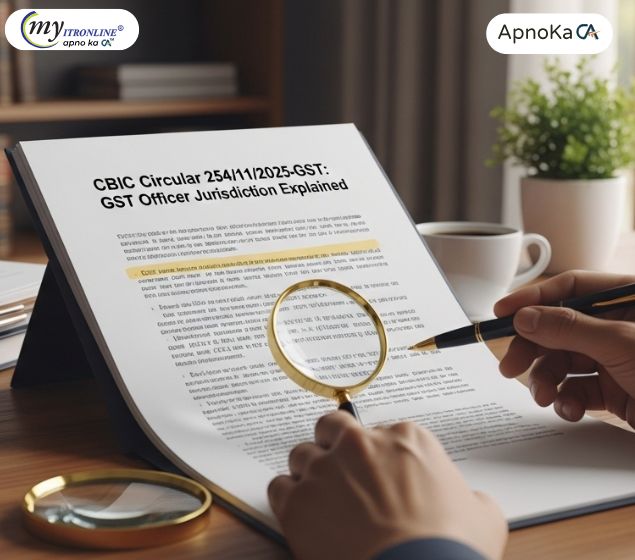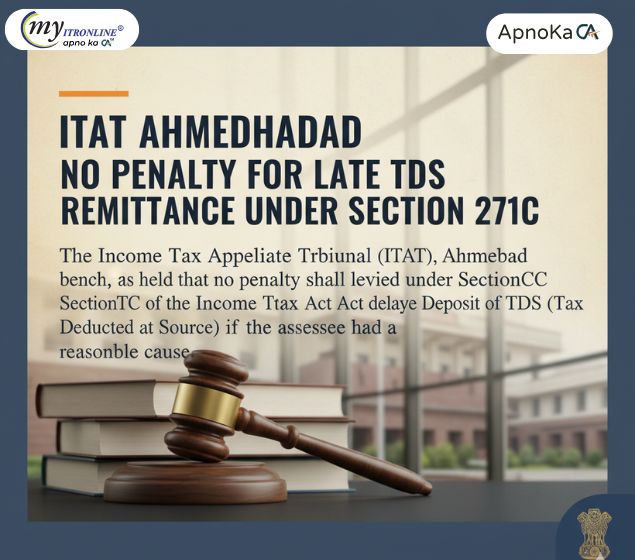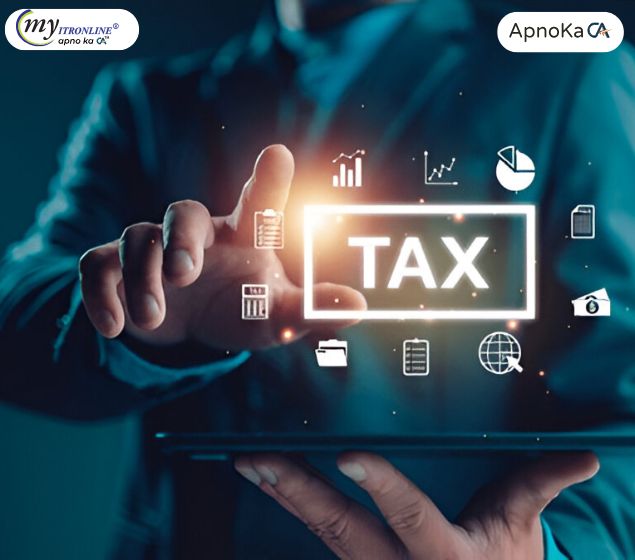# penalty
12 posts in `penalty` tag

CBIC Circular 254/11/2025-GST: GST Officer Jurisdiction Explained
CBIC has issued Circular No. 254/11/2025-GST to clarify which officers will handle GST cases related to tax, ITC, and penalties under the CGST Act. This blog explains the officer levels, monetary limits, and key sections covered, making it easier for taxpayers to understand who will manage their case.

GST Appeals Made Easier: Lower Pre Deposit Rules Under Finance Act 2025
The Finance Act 2025 brings relief to businesses by reducing the pre-deposit requirement for penalty only GST appeals from 25% to 10%. Tax appeals remain unchanged at 10%. Businesses can now use Input Tax Credit (ITC) for deposits, improving cash flow and easing compliance. These changes will be effective after CBIC notification.

ITAT Ahmedabad: No Penalty for Late TDS Remittance under Section 271C
In a landmark ruling, ITAT Ahmedabad has held that penalty under Section 271C of the Income Tax Act is not applicable for delayed remittance of TDS, provided the tax was deducted and paid with interest. This decision, based on Supreme Court precedent, offers relief to taxpayers facing procedural delays.
.jpg)
URGENT: Don't Hide Foreign ESOPs! Face 10,00,000 Penalty if Undisclosed!
This blog post alerts Indian taxpayers about the important need to report foreign Employee Stock Option Plans (ESOPs) in their Income Tax Returns. It describes what foreign ESOPs are and explains why disclosing them is required under laws like the "Black Money Act." Failing to comply can lead to a large penalty of 10,00,000 and possible jail time. The post also offers straightforward instructions on how and where to report these assets in ITR-2 or ITR-3, urging taxpayers to act quickly and recommending myITROnline for expert help.

Facing ITR Penalties? Here's What Section 234F & 234A Mean for You
This blog post demystifies the consequences of late Income Tax Return (ITR) filing in India, specifically detailing the penalties under Section 234F (late filing fee) and the interest charged under Section 234A (for delayed tax payment). It explains the calculation methods, applicable scenarios, and additional disadvantages of missing the ITR deadline, urging taxpayers to prioritize timely filing to avoid financial burdens and ensure compliance.
.jpg)
Understanding Interest Under Sections 234A, 234B, and 234C of the Income Tax Act
Sections 234A, 234B, and 234C of the Income Tax Act deal with interest charged for late filing of returns, underpayment, or deferment of advance tax. This blog explains each section in detail with examples and calculations, helping taxpayers stay compliant and avoid extra charge

200% Fine & Prosecution: What New ITR Rules Mean for You
This blog post warns taxpayers about the updated ITR regulations, highlighting the drastic consequences of under-reporting or misreporting income, including a 200% penalty and potential criminal prosecution. It explains why the Income Tax Department is increasing scrutiny through data analytics and detailed ITR forms, and provides essential steps for taxpayers to ensure compliance and avoid severe financial and legal repercussions.

PAN Card Holders Advisory
This blog post informs PAN card holders about the Income Tax Department's warning regarding a 10,000 penalty for specific violations, particularly focusing on the issue of holding multiple PAN cards. It explains the reasons for such violations, the relevant Section 272B of the Income Tax Act, other non-compliances attracting the same penalty, and provides essential guidance on how to prevent these issues and ensure PAN compliance.

Form 16B Overview: Important Deadlines and Fines for Property TDS Certificates
This blog explains Form 16B, the TDS certificate mandatory for property sales over ₹50 lakh in India under Section 194-IA. It details the buyer's responsibility, the process involving Form 26QB, critical deadlines for certificate issuance (15 days from Form 26QB due date), and the penalties (₹100/day under Sec 272A(2)(g)) for non-compliance, emphasizing its importance for both buyers and sellers.
.jpg)
Scrutiny on Rental Income: Tax Notices for TDS Non-Compliance on High Rent
The Income Tax Department is intensifying its efforts against non-compliance regarding TDS deductions for rental payments that exceed
50,000 per month. Understand Section 194IB, the penalties for failing to deduct, and the procedures to follow when addressing tax notices.

Rental Earnings Being Evaluated: Income Tax Notifications for Non-Withdrawal of TDS on Elevated Rent
The Income Tax Department is intensifying its efforts against non-compliance regarding TDS deductions for rental payments that exceed
50,000 per month. Understand Section 194IB, the penalties for failing to deduct, and the procedures to follow when addressing tax notices.
.jpg)
GST Appeals & Notification 02/2025: Understanding Section 128A
The CGST Act, 2017's Section 128A, which gives taxpayers the ability to contest interest and penalty charges under the GST, is explained in this blog article. It goes over the section's main points, pertinent CBIC notices, and the appeals procedure.
